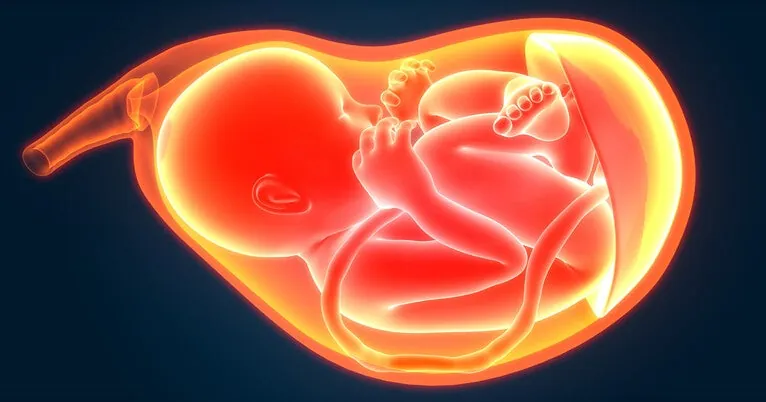
The Surprising Role of the Placenta: Your Baby's Secret 'Serotonin Shield'
2025-09-03
Author: Jia
A Revolutionary Discovery in Pregnancy Science
For years, the placenta was believed to produce serotonin—a vital hormone linked to mood. But groundbreaking research from Yale University has overturned this long-standing myth. Instead, researchers reveal that the placenta doesn't generate serotonin; rather, it serves as a 'serotonin shield,' managing the hormone's delivery from the pregnant parent to the developing embryo and fetus.
What This Means for Baby's Development
Published in the journal Endocrinology, this study opens up vital channels of understanding about parental serotonin levels and their impact on fetal development. Harvey Kliman, a research scientist at Yale, emphasizes the importance of these findings, stating, "Now we correctly know where the delivery of serotonin is regulated. This new understanding could reshape how we think about maternal health and its effects on brain and body development in babies."
Beyond Happiness: The Multifaceted Role of Serotonin
Often dubbed the 'happiness hormone,' serotonin does far more than regulate mood. Surprisingly, under 5% of serotonin is produced in the brain; a whopping 95% is synthesized in the gut! In addition to its mood-modulating properties, serotonin is essential for growth, facilitating processes such as wound healing. During pregnancy, serotonin is critical as it crosses into the placenta through a specialized protein, the serotonin transporter (SERT), where it spurs the development of the embryo and fetus.
Innovative Research Techniques Yield New Insights
This new study utilized a unique approach by purifying human placental stem cells, known as cytotrophoblasts. Researchers introduced serotonin to these cells and observed its concentration in the nucleus—a key area for cell function. They demonstrated how blocking SERT with the antidepressant escitalopram could disrupt the growth and differentiation of these cells, underscoring serotonin's integral role.
Implications for Maternal and Fetal Health
Kliman highlights that any factors affecting serotonin transport can significantly impact the placenta and, consequently, the embryo and newborn. For instance, using SSRIs during pregnancy has been linked to smaller babies, while higher serotonin levels might lead to larger babies with potentially larger brains—which may also raise the risk of developmental disorders such as autism.
Connecting Placentas to Autism Research
Kliman’s lab has extensively studied the relationship between placentas and autism, particularly focusing on trophoblast inclusions (TIs)—irregularities seen in placentas from children with autism. Their prior findings in 2006 and 2021 suggest that the genetics of the fetus, rather than the mother’s environment, dictate the presence of TIs, giving weight to the idea that autism begins in the womb.
Conclusion: A New Avenue for Understanding Developmental Disorders
With this research, Kliman aims to dispel the common belief that vaccines contribute to autism, asserting, "Autism, in essence, starts in the womb, influenced primarily by genetics." This revolutionary study, backed by grants from esteemed institutions, reinforces the critical role of the placenta in prenatal development, positioning it as a key player in understanding early childhood health.
 Brasil (PT)
Brasil (PT)
 Canada (EN)
Canada (EN)
 Chile (ES)
Chile (ES)
 Česko (CS)
Česko (CS)
 대한민국 (KO)
대한민국 (KO)
 España (ES)
España (ES)
 France (FR)
France (FR)
 Hong Kong (EN)
Hong Kong (EN)
 Italia (IT)
Italia (IT)
 日本 (JA)
日本 (JA)
 Magyarország (HU)
Magyarország (HU)
 Norge (NO)
Norge (NO)
 Polska (PL)
Polska (PL)
 Schweiz (DE)
Schweiz (DE)
 Singapore (EN)
Singapore (EN)
 Sverige (SV)
Sverige (SV)
 Suomi (FI)
Suomi (FI)
 Türkiye (TR)
Türkiye (TR)
 الإمارات العربية المتحدة (AR)
الإمارات العربية المتحدة (AR)